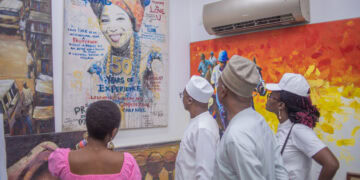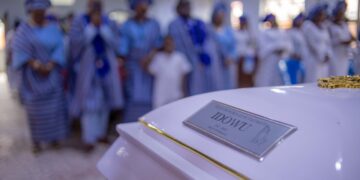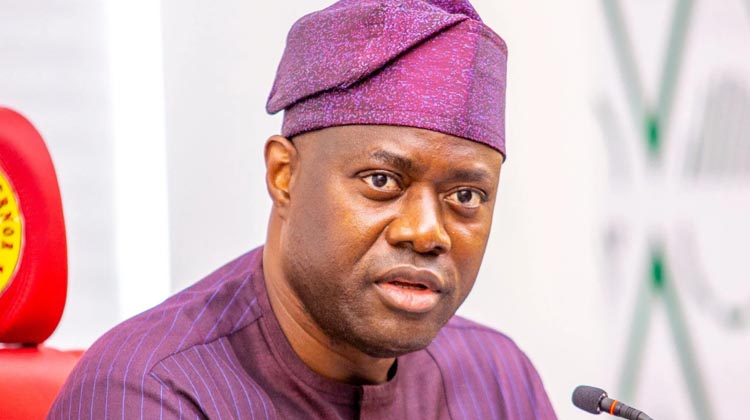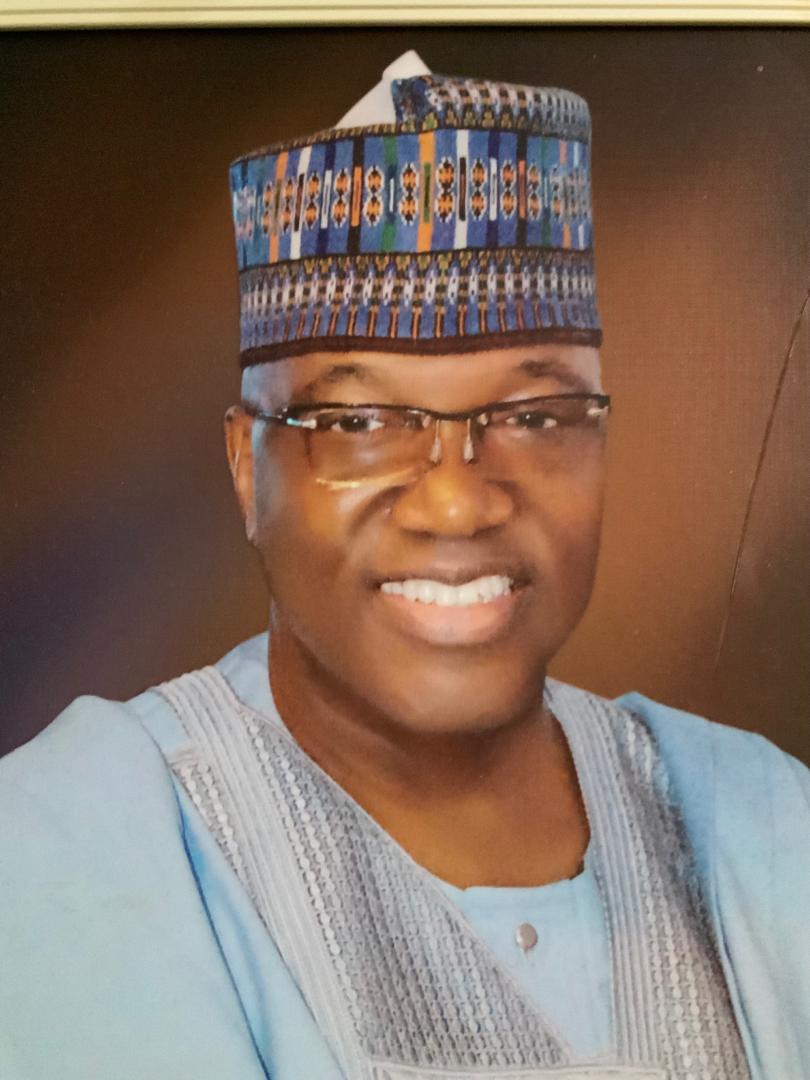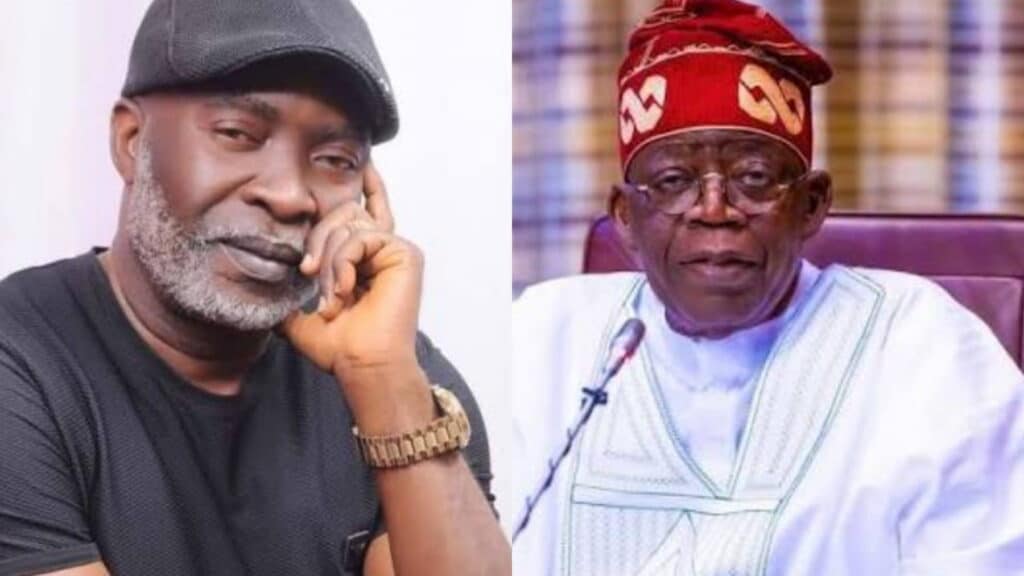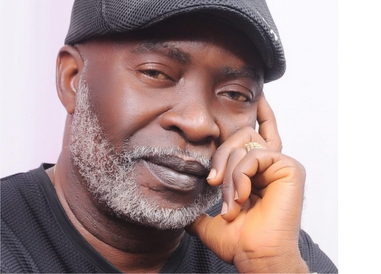The Egba people are a subgroup of the Yoruba people, an ethnic group of western Nigeria, a majority of whom are from the central part of Ogun State that is Ogun Central Senatorial District.
Ogun Central Senatorial District comprises six local government areas in Ogun State: Abeokuta North, Abeokuta South, Ewekoro, Ifo, Obafemi Owode and Odeda local governments.
The Egba are ancient freedom-fighters, highly intellectual, artistic and agriculturalist Yoruboid-speaking people that forms the sub-set of the larger Yoruba ethnic group of West Africa, particularly in Nigeria and the Republic of Benin. Egba people who were also traders reside in Southwestern Nigeria in the city of Abeokuta, the Capital of Ogun State.
Egba people who are the original founders of the city of Abeokuta which they share with Owu people (later arrivals), had an opportunity of their land also settled on by missionaries (in the 1840s) by Sierra Leone Creole (Saro, who were Nigerians and others Africans descendants repatriated from diaspora back to Sierra Leone) who later became prominent as missionaries and as businessmen. It must be emphasized that Abeokuta’s success as the capital of the Egbas and as a link in theLagos – Abeokuta oil-palm trade led to war with Dahomey (now Benin Republic). In the battle at Abeokuta in 1851,the Egbas were aided by the missionaries and also armed by the British. Thus, they were able to defeat King Gezo’sDahomey Army that was unique and famous in the history of West Africa for its common practice of using women warriors. Another Dahomey attack was repulsed in 1864. Troubles in the 1860s with the British in Lagos led the Egbas to close the trade routes to the coast and they expelled its missionaries and European traders at about 1867.
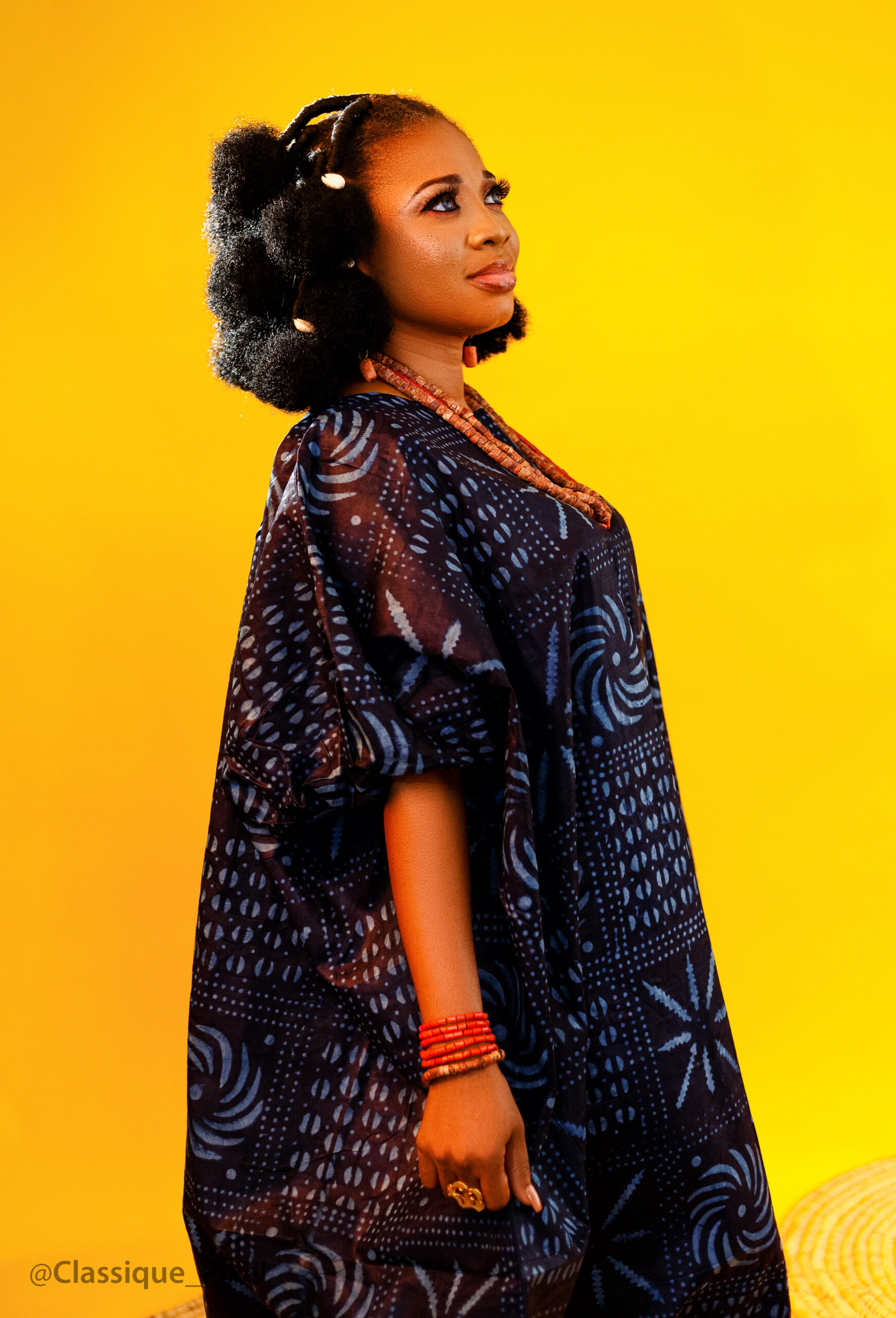
Egba people are direct descendants of Orafiyan, son and successor of Oduduwa, the progenitor of Yoruba people. They were under a federation of three groups-Ake, Okeona and Gbagura scattered over 150 towns and including the modern city of Ibadan, Oyo and Ijaye. Egba people were parts of the famous pre-colonial African Oyo empire (Kingdom) in Nigeria.
Up until the 18th Century, the Egba people lived in a cluster of villages around a place known as Orile-Itoko, as a subject territory of the old Oyo Empire, which was one of the strongest empires that ever existed in West Africa. Just like the Roman Empire, the Oyo empire was so strong that it easily quelled any form of uprising or rebellion from any of its subject-states. It was however shocking when a little known, but brave warrior, Lisabi Agbongbo-Akala, arose from among the Egba people and led the nation in an uprising against the Oyo Army’s continuous occupation of their land, the first in the history of political and military confrontation with the Oyo kingdom. The defeated the Oyo army not only liberated the Egba people from the stronghold of the Oyo kingdom, it also signaled the disintegration of the all-mighty empire and the small nation of Egba ceased to be a colony of the Oyo empire and became a free state while Lisabi Agbongbo Akala, up to this day, is regarded as the father of the Egba people for his outstanding roles in the people’s liberation.

However, the weakening might of the Oyo Empire as a result of continuous disintegration of the kingdom and rise of former colonies like Ibadan, Ijebu and the likes coupled with the boom of the slave trade, exposed the nation to frequent attacks from Ibadan as well as Dahomey, another big empire with its headquarters in today’s Benin Republic.
Thus, between 1825 and 1830 when it became expedient that the Nation of Egba can no longer withstand the frequent attacks of the slave hunters from Ibadan and Dahomey, the Egba people, on the directives of the Ifa Oracle, was led by chief Shodeke, on a long but tortuous journey that brought them to the western side of the massive outcrop of granite rocks called “OLUMO”, that is “Oluwa fimo” meaning God puts an end to our wandering. The very point the oracle asked them to relocate to.
Historically Egba people used to people without kings, hence the common saying:”“Egba ko l’olu, gbogbo nwon ni nse bi Oba” (Egbas have no king, they are all of them like masters) “Olu wa’ l’Oyo” (The king of Oyo). That is to say, they have no king that rules. The king is acknowledged as the head of the government, but only as a figure head. More marked was this when they lived in separate townships before their concentration at Abeokuta. The Ogbonis constitute the town council, and they are also the executive, and even the ” king” was subject to them. The same rule holds good even at Abeokuta for each township. Amongst the highest Ogboni titles are:
The Aro, Oluwo, Apena, Ntowa, Bala, Basala Baki, Asipa, Asalu, Lajila, Apesi, Esinkin Ola, Bayimbo, Odgfin. The warriors rank next after the Ogbonis, the Balogun and the Seriki being the most important. The Egbas have been significant members of ruling political parties, music, art, feminism advocacy, freedom and democracy and at the forefront of Human Rights campaigns. In fact, they have contributed significantly to the political development of Nigeria and the world.
Egbas distinctions from Yoruba
The Egbas can be distinguished from other Yoruba group with:
The Egba facial marks. The Egba facial mark is known as the Abaja Oro.
Abaja oro (vertcal abaja), is a set of three perpendicular lines that is set in an upright position and cut into the two cheeks. This was common among the Egba people and differen from de Pele only in lenght (Egba marks are longer).
The younger generations, however, have their lines rather faint or of shorter lengths indistinguishable from the Pele.
On clothing, Egba men wear trousers, kembe/sokoto for down; and the top is Buba and Agbada; cap, Fila (a beti aja).
Their women wear: Down, Wrapper, Iro; Top, Buba; Headgear, Gele; Others – Ipele – Piece of cloth placed on the shoulder or wrapped around the waist.
Their staple food Food is Lafu (White Amala) and Ewedu soup; Wara, (Cottage Cheese Drink)
The Egba people have their own National Anthem as a group of people.
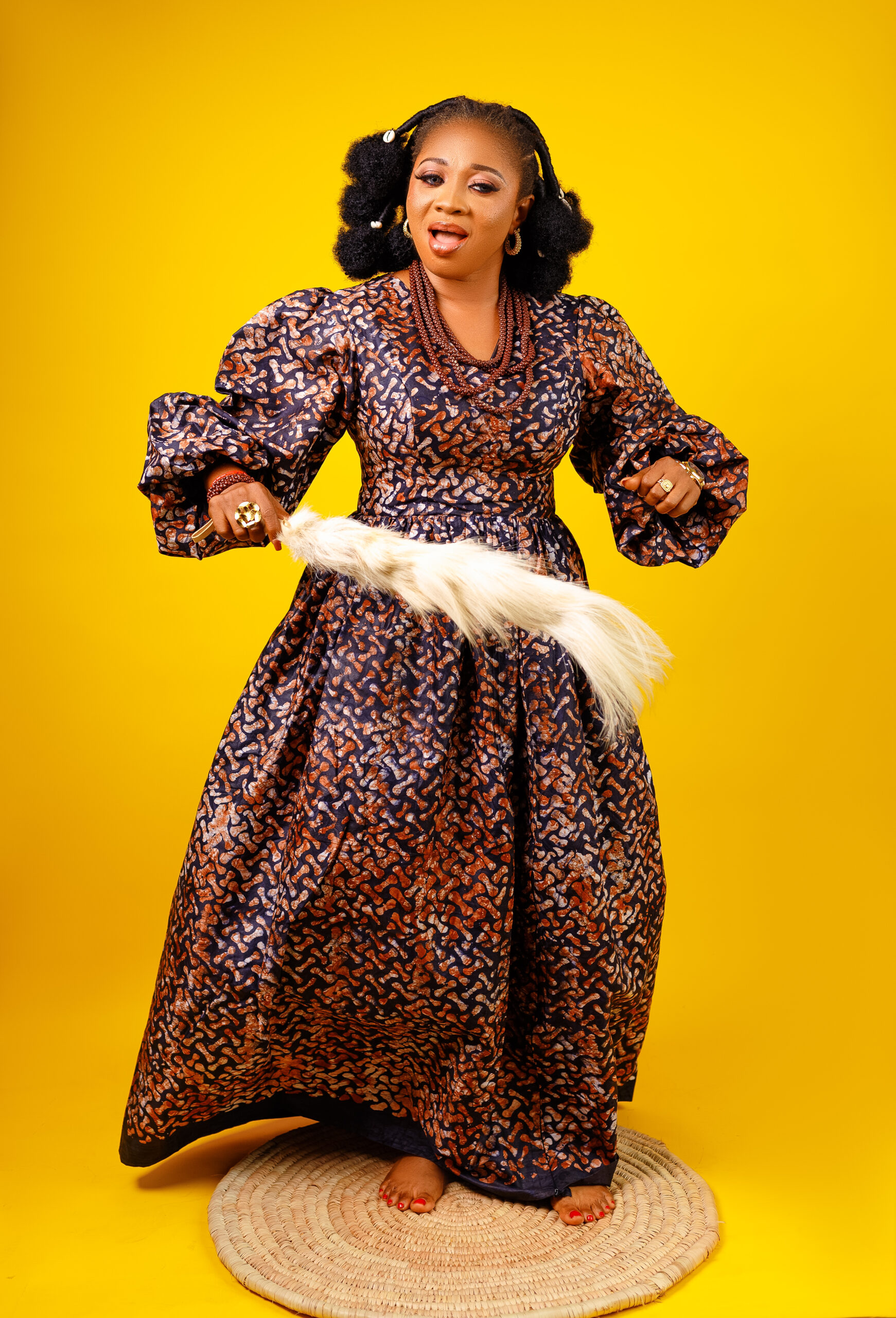
Geography and Economy
Abeokuta lies in the fertile country of wooded savanna, the surface of which is broken by masses of grey granite. It is spread over an extensive area, being surrounded by mud walls 18 miles in extent.
Abeokuta is an agro-based market with small and middle level agro industries. The people produce agricultural products such as Yams, Cassava, Rice, Corn, Palm oil, Poultry, Cottons and vegetables.
Due to the rocky terrain of some parts of the city, it has for many years been home to a number of quarry industries. Although, cotton was introduced by the Missionaries in the 1850’s, Cotton weaving, pottery and tie and dye (Adire) are all traditional crafts of the Abeokuta people.
The city is reputed to be the capital of the tie and dye industry in Nigeria. The centre of Adire making and marketing in Abeokuta is at the popular Itoku market at Kenta.
Palm-oil, timber, rubber, yams, rice, cassava, maize, cotton, other fruits, and shea butter are the chief articles of trade. It is a key export location for cocoa, palm products, fruit, and kola nuts. Both rice and cotton were introduced by the missionaries in the 1850’s and have become integral parts of the economy, along with the dye indigo. It lies below the Olumo Rock, home to several caves and shrines. The town depends on the Oyan River Dam for its water supply.
Abeokuta is the headquarters of the Federal Ogun-Oshin River Basin Authority, which is responsible for development of land and water resources for Lagos, Ogun, and Oyo states. Included in this are irrigation, food-processing, and electrification.
Local industries include but are not limited to fruit canning plants, plastics, breweries, sawmills, and an aluminum products factory. South of town are the Aro Granite Quarries.
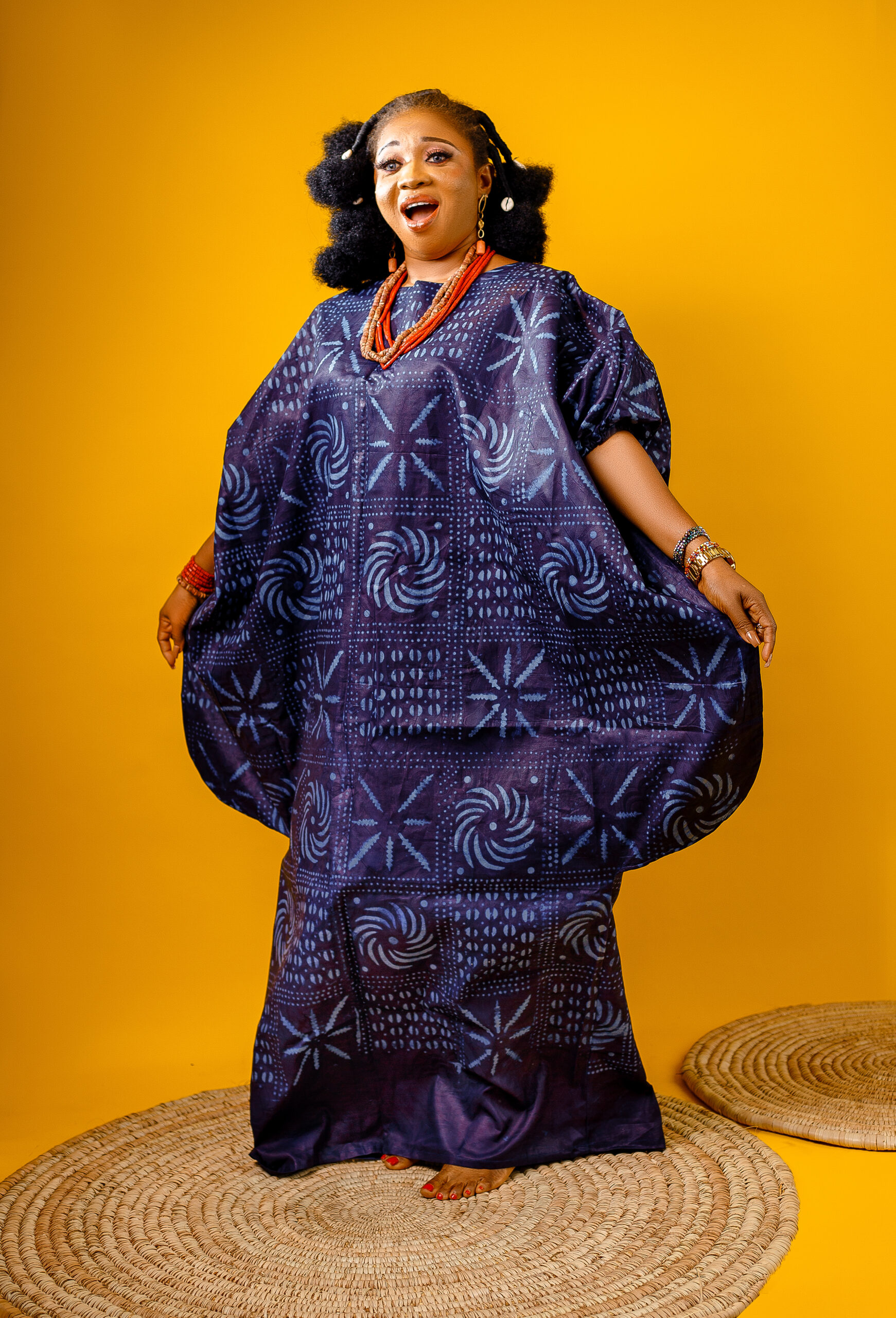
Language
Egba people speaks North-West Yoruba (NWY) dialect of the Yoruboid languages which belongs to the larger Niger-Congo language phylum. Apart from Egba people of Abeokuta, NYW dialect is also spoken in Ibadan, Ọyọ, Ogun and Lagos (Eko) areas.
North-West Yoruba is historically a part of the Ọyọ empire. In NWY dialects, Proto-Yoruba /gh/ (the velar fricative [ɣ]) and /gw/ have merged into /w/; the upper vowels /i ̣/ and /ụ/ were raised and merged with /i/ and /u/, just as their nasal counterparts, resulting in a vowel system with seven oral and three nasal vowels. Ethnographically, traditional government is based on a division of power between civil and war chiefs; lineage and descent are unilineal and agnatic.
History
The Egba group, originally under the Oyo Empire, became independent following the spectacular collapse of Oyo in the first half of the 19th century. Wars with the Dahomey, in which the Egbas were successful partly due to the protection afforded by the Olumo Rock, led to the founding of the city of Abeokuta, which literally means “under the rock”.
The Egba nation is made up of the following subdivisions: the Ake, Owu, Oke Ona and Gbagura, each with its own king. (Historically, the Egba nation is made up of these four divisions; Ibara, though geographically located in Abeokuta as well, is part of Yewaland.) During colonial rule the British recognised the Alake (or King of Ake) as the paramount ruler of the whole clan and their territory, and so, his successor is now referred to as the Alake of Egbaland. The titles of the kings of the aforementioned subdivisions are therefore Alake of Egbaland, Oshile of Oke Ona, Agura of Gbagura, and Olowu of Owu, in order of settlement and seniority in the Egba nation.
It is worthy of note that the original town and settlement of the Egba nation in Egbaland was under and around Olumo Rock, which is in the Ikija/Ikereku area of the Egba Oke Ona. The Jagunna of Itoko, an Oke Ona chief, is the high priest of Olumo. Olumo Rock is in the territory of and under the control of the Itokos.
Another reference name for Abeokuta by the founding fathers is Oko Adagba (Adagba’s Farm) in reference to the hunter that discovered Olumo Rock. Adagba went hunting in search of game animals from the Obantoko township where his fellow Itoko citizens were stationed while wandering for a settlement. He then came across the mountain.
Egbaland was where Henry Townsend lived, and was also the home of the first newspaper in Nigeria (Iwe Irohin). Its people went on to serve as the first of the many Nigerian nations (until recently, the only one of them) to have an anthem.

Political structure
The convention which the Egba people operated since 1830 was never codified until 1897 when the EGBA UNITED GOVERNMENT became structured. Under the convention, the quarters were broadly grouped under four natural rulers namely:
The ALAKE of AKE, the OSILE of OKE-ONA, the AGURA of GBAGURA, and the OLOWU of OWU
The amalgamation of the Egba people in Abeokuta shared political powers in varying degrees under the following broad classifications:
The OGBONIs – the SENATE
Next to the natural rulers, the OGBONI chiefs constituted the Executive Council in the administration of the State. Their advice was highly valued by the natural rulers who invariably consulted them in confidence before taking any major decisions. The Ogbonis adjudicated over cases involving murder, adultery, divorce, recovery of debts, etc.

The OLOGUNs – the War Chiefs – who prosecuted wars
Were responsible for executing wars declared by the natural ruler or considered necessary at their own discretions. They were expected to be militarily prepared all the time, either to wage the Obas war or to ward off attacks from invaders. Sometimes, the War Chiefs wielded much power which could constitute a threat to the security of tenure of Oba himself.
The PARAKOYIs – the Commercial Chiefs who dominated the Economic sector.
The Commercial Chiefs superintended over matters of commerce and trade in general. They were responsible for the smooth running of the commercial life of the community and offered economic advice to the state.
The OLODEs – the Hunting Chiefs whose role was minor but nevertheless significant.
They looked after the affairs of farming and hunting in peace time. During wars, they performed Para-military duties.
Sources:
Photo Gallery: © Jordi Zaragozà Anglès
Wikipedia.org
kwekudee-tripdownmemorylane.blogspot.com
Bukola Oyeniyi “Dress in the Making of African Identity: A Social and Cultural History of the Yoruba People”
Peoplegroups.org
Innersloth Limited is a company into protecting cultural heritages across Africa. For more information, send your enquries to innersloth@freelanews.com







